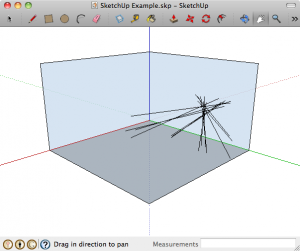I use the Qt library in my day-to-day development work. I build my Qt libraries directly from the git repository and they are configured specifically for my projects. On the Mac OS X side, this is the command line I use:
|
1 2 3 |
./configure -no-qt3support -no-qdbus -no-nis -no-iconv -no-stl -no-accessibility \ -no-audio-backend -no-svg -no-webkit -no-javascript-jit \ -arch x86 -platform macx-llvm -opensource -nomake demos -nomake examples |
The Windows one is similar:
|
1 2 3 |
.\configure -no-qt3support -no-qdbus -no-stl -no-accessibility \ -no-incredibuild-xge -no-plugin-manifests -no-audio-backend -no-webkit \ -platform win32-msvc2005 -opensource -nomake demos -nomake examples |
You will notice that I am explicitly removing a whole bunch of stuff – SVG, WebKit, audio, etc.. The time it takes to build the Qt libraries is not insignificant and since I typically track the git repo, I don’t want to waste time building things I will not be using in my projects. The WebKit code takes an extraordinary amount of time to build, for example. I also don’t want to build things into the libs that I’m not going to be using for my commercial software – such as STL. One of the problems this poses, however, is how to handle build problems with other projects I want to build, for example the GUI for the open-source Cppcheck program.
For the most part the projects I’m interested in don’t use any of the capabilities I’m eliminating from my Qt build, but one option has been problematic for a couple of projects: -no-stl. This is because the projects use the functions QString::toStdString() and QString::fromStdString() which do not exist when you build Qt with the -no-stl option. While STL may be available to the source you are building, it was not compiled into the Qt libs, so this causes an error.
When I try to build Cppcheck using my own Qt build, I get errors like this:
../gui/mainwindow.cpp: In member function ‘Settings MainWindow::GetCppcheckSettings()’: ../gui/mainwindow.cpp:457: error: ‘class QString’ has no member named ‘toStdString’
../gui/threadresult.cpp: In member function ‘virtual void ThreadResult::reportOut(const std::string&)’: ../gui/threadresult.cpp:42: error: ‘fromStdString’ is not a member of ‘QString’
Solutions?
